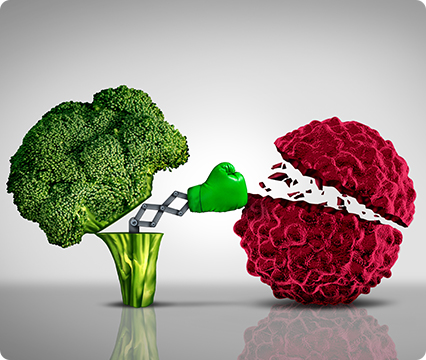Nutritional interventions for treating cancer-related fatigue: a qualitative review
This 2019 review firstly explains the extent to which cancer survivors experience debilitating and long-lasting symptoms after years of treatment. In addition to the persistent fatigue, functional decline, inflammation, depression and cognitive difficulties, cancer therapeutic drugs can alter body composition and cause nutritional deficiencies that can make the patient weak and feel more fatigued. The purpose of this review was to examine the clinical trials that assessed nutritional interventions in the context of prevention and treatment of cancer-related fatigue. Also, studies analyzing nutritional interventions addressing inflammation as well as fatigue were added to this literature review. What was eaten before, during, and after cancer treatment appeared to affect fatigue levels. Anti-inflammatory dietary patterns such as the Mediterranean diet and other plant-based diets may reduce fatigue and seem to be tolerated by those who beat cancer. It was also noted that taking in more protein can help preserve lean mass and body composition. Furthermore, supplementation with ginseng, ginger, or probiotics may enhance survivors’ energy levels. In conclusion, nutritional interventions, either alone or in combination with other interventions, should be considered as therapy for fatigue in cancer survivors. [NPID: cancer, fatigue, functional decline, inflammation, depression, cognition, body composition, nutritional deficiencies, inflammation, Med diet, Mediterranean diet, plant-based, ginseng, ginger, probiotics]
Year: 2019
 Navigation
Navigation






